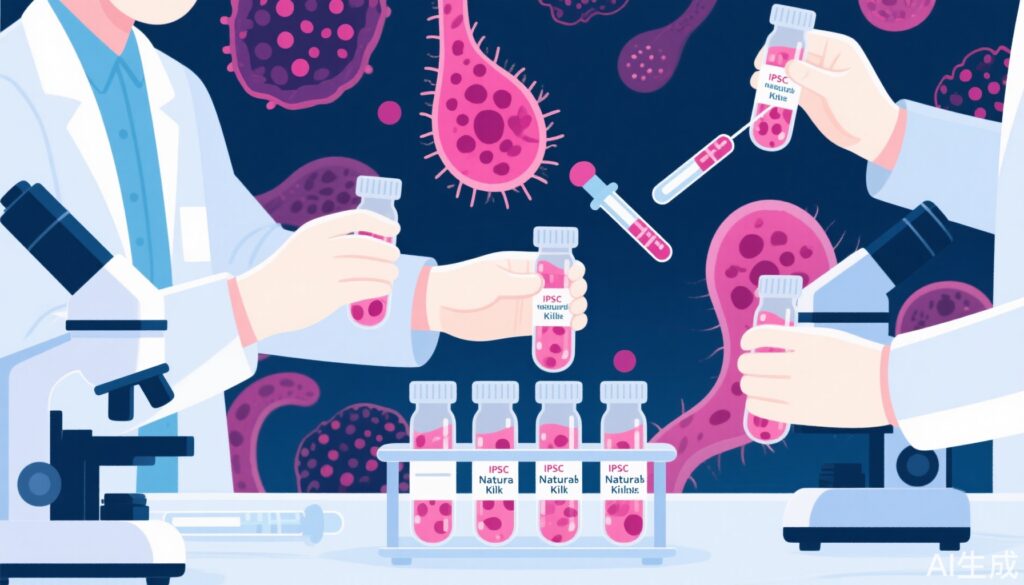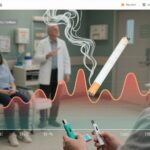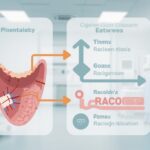Highlights
- FT516, an off-the-shelf iPSC-derived NK cell therapy, demonstrated a favorable safety profile with no dose-limiting toxicities in relapsed/refractory B-cell lymphoma.
- Objective response rate was 58% in a heavily pretreated patient population.
- The therapy may address key logistical barriers of autologous and allogeneic immune-cell therapies, such as manufacturing time, heterogeneity, and access.
Study Background and Disease Burden
B-cell lymphomas represent a diverse and clinically challenging group of hematological malignancies. Despite recent advances in targeted therapies and immunotherapies, including CAR T-cell therapy, many patients with relapsed or refractory disease face significant morbidity and limited options. Existing cell-based immunotherapies are hampered by manufacturing delays, donor variability, and high costs. Natural killer (NK) cell therapies, which can kill tumor cells without prior sensitization, have shown promise but are constrained by difficulties in sourcing donor cells and ensuring consistent product quality. The FT516 product, derived from induced pluripotent stem cells (iPSCs) and engineered to express a high-affinity, non-cleavable CD16 receptor, is designed to optimize antibody-dependent cellular cytotoxicity (ADCC) when combined with therapeutic monoclonal antibodies.
Study Design
This multicentre, open-label, phase 1 trial (ClinicalTrials.gov NCT04023071) assessed the safety and preliminary efficacy of FT516 in adults with relapsed or refractory B-cell lymphoma. Conducted at eight research centers in the USA, the study enrolled patients aged 18 years or older who had CD20-positive B-cell lymphoma, measurable disease, and had failed at least one prior systemic therapy (including anti-CD20 antibodies). Key inclusion criteria also required absence of alternative curative treatment options.
Participants underwent lymphodepleting chemotherapy with either fludarabine and cyclophosphamide or bendamustine, followed by rituximab (or obinutuzumab for follicular lymphoma during dose expansion). FT516 was administered intravenously on days 1, 8, and 15 of a 28-day cycle at escalating doses (3 × 107 to 9 × 108 cells per dose), along with subcutaneous IL-2 to promote NK cell survival and activity. The primary endpoints were safety, dose-limiting toxicity, and maximum tolerated dose. Secondary endpoints included objective response rate, defined by standard response criteria.
Key Findings
Fifty-six patients were enrolled between October 2019 and November 2022, with 55 receiving at least one FT516 dose. The cohort was 58% male and predominantly White (78%).
Safety outcomes were particularly notable:
- No dose-limiting toxicities were observed at any FT516 dose level.
- The highest tested dose (9 × 108 cells per dose, administered three times per cycle) was deemed safe and selected as the recommended phase 2 dose.
- Cytokine release syndrome (CRS), a concern with cell therapies, occurred in only one patient (2%) and was mild (grade 1). No patients developed neurotoxicity, a significant adverse event often associated with CAR T therapies.
- The most common grade 3 or worse adverse events were cytopenias: neutropenia (84%), thrombocytopenia (36%), and anemia (27%). Importantly, there were no treatment-related deaths.
Efficacy signals were promising for this heavily pretreated population:
- Objective response was achieved in 32 of 55 patients (58%).
- While detailed breakdowns of complete vs. partial responses were not provided in the primary report, these outcomes compare favorably with existing salvage regimens and highlight the clinical activity of FT516, particularly given the inclusion of patients who had failed prior anti-CD20 monoclonal antibody therapy.
Expert Commentary
The results of this phase 1 study position FT516 as a leading candidate among off-the-shelf, iPSC-derived NK cell therapies. The lack of dose-limiting toxicities and minimal immune-related adverse effects—especially the near absence of CRS and neurotoxicity—contrast with the profile of CAR T-cell therapies and may allow broader application, including in older or medically frail patients.
Mechanistically, the engineered high-affinity, non-cleavable CD16 receptor enhances ADCC in the presence of monoclonal antibodies such as rituximab or obinutuzumab, potentially accounting for the high observed response rates. Additionally, iPSC-derived manufacturing provides a scalable and consistent cell product, overcoming important logistical and cost barriers.
Limitations include the early-phase, non-randomized design and the lack of a comparator arm. The relatively short follow-up and the absence of detailed durability data (e.g., median progression-free survival, overall survival) limit conclusions about long-term benefit. Nevertheless, the safety and efficacy signals in this difficult-to-treat population justify further investigation in phase 2 and 3 studies. Ongoing research should clarify optimal dosing, combinations with other immunotherapies, and the role of FT516 earlier in the treatment paradigm.
Conclusion
FT516, an off-the-shelf iPSC-derived NK cell therapy, demonstrates an encouraging safety and efficacy profile in relapsed or refractory B-cell lymphoma. This approach may offer a scalable, consistent, and accessible alternative to autologous cell therapies, with the potential to transform the treatment landscape of B-cell malignancies. Further randomized studies are warranted to confirm these findings and to define FT516’s role in clinical practice.
References
1. Strati P, Castro J, Goodman A, Bachanova V, Kamdar M, Awan FT, et al. Off-the-shelf induced pluripotent stem-cell-derived natural killer-cell therapy in relapsed or refractory B-cell lymphoma: a multicentre, open-label, phase 1 study. Lancet Haematol. 2025 Jul;12(7):e505-e515. doi: 10.1016/S2352-3026(25)00142-5. PMID: 40610174.



